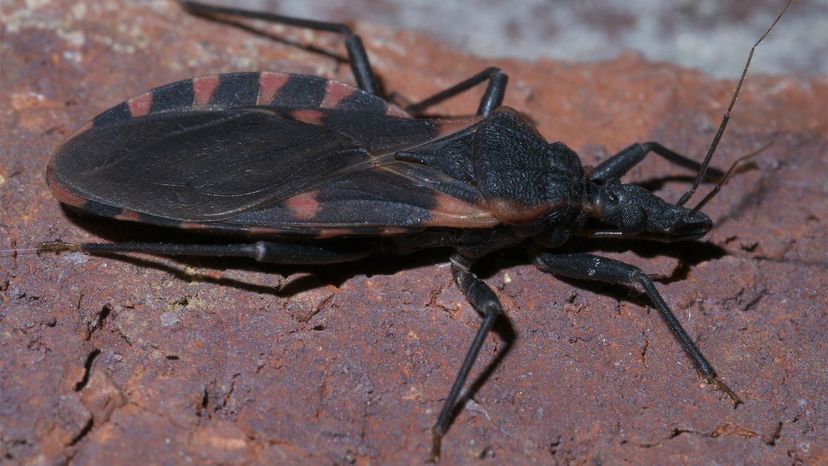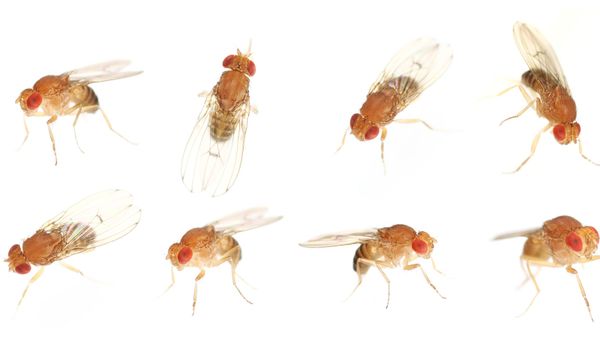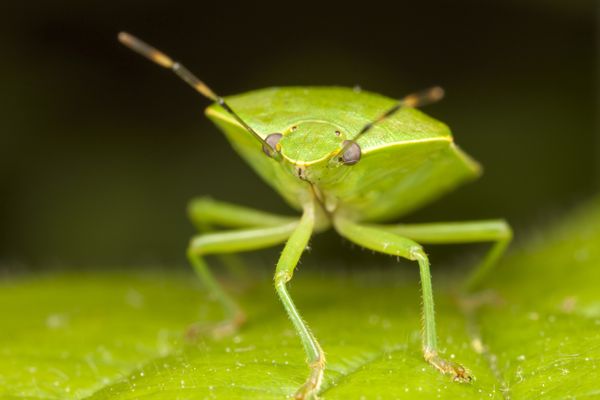
It sounds like a lame excuse for bailing on a make out session with your boyfriend, but "kissing bugs" are very real, and they're not related to real smooches at all — they're a whole lot grosser.
Otherwise known as Triatoma sanguisuga, the "kissing bug" is a type of bloodsucking insect usually found in the southeastern United States and throughout Latin America, but it's been making headlines for its recent appearance in unprecedented areas. In summer of 2018, a girl in Delaware was bit on the face while watching television, and the Centers for Disease Control and Prevention (CDC) confirmed it as the first identification of the bug in that state.
Advertisement
The reason for the bug's kissing nickname isn't all that sweet — it's just due to the fact that it bites victims around the mouth and eyes. But the non-love bites aren't just annoying; they can actually cause serious health complications. When the bugs bite, they can transmit a parasite called Trypanosoma cruzi, which can cause Chagas disease, an illness that's associated with everything from diarrhea and headaches to severe cardiac and gastrointestinal complications.
Luckily, the Delaware girl didn't experience any major issues, and her family acted quickly, contacting the Delaware Division of Public Health and the Delaware Department of Agriculture to identify her biter. "The girl who was bitten had no ill effects," the CDC report said, and although the bug's presence was confirmed in Delaware at the time, there is no current evidence of Trypanosoma cruzi in the state.
Kissing bugs have been reported in 28 U.S. states, and just a few cases of Chagas disease have come from contact with the bugs, but experts say it's still essential to minimize your risk. A few tips to prevent infection:
- Make sure any gaps or cracks in your doors, windows, walls and roof are sealed.
- Eliminate any piles of brush, wood or rocks near your house.
- Bring your pets inside to sleep at night.
- Keep screens on your doors and windows, and make sure they stay intact.
If you do think you've stumbled upon a kissing bug, don't smush it — it's best to let the authorities figure out what the heck it is first. Try to contain any creeped out feelings and place the bug in a container before filling it with alcohol or freezing it in water. Then pack up your little friend (or foe) and take it to the health department.
Advertisement

